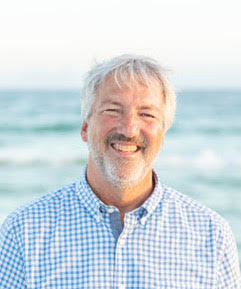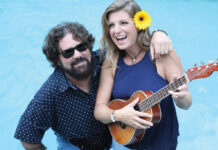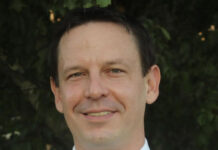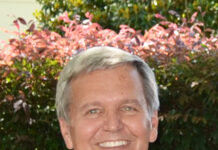By Kirk McCarley,

Imagine that in the journey of life you have a choice. The choice is that you can be either “right,” or you can be “effective.” The two are mutually exclusive, you may pick one or the other. What would be your decision?
Our nature is developed to be right. Early in life parents, or those responsible for our upbringing, strive to help us distinguish right from wrong. As we attend school we are assessed according to our understanding of what’s taught and whether our answers or comprehension is correct. In adolescence and on later into life we are encouraged to make “good” decisions. Much can hinge on our ability to be correct.
We admire those who stick to their beliefs. Martin Luther King, Jr. was at the center of a revolution that helped bring about greater freedom and acceptance for those oppressed and excluded. Abraham Lincoln felt strongly in the unity of all states in America. Despite criticism Moses led the Israelites from captivity across the Red Sea.
Most of us would agree, good things.
Where is it that the need and desire to be right intersect with an unrelenting dogmatism? In other words, “my” interpretation of the facts is correct.
Chuck was someone in my neighborhood who was a bit “off,” maybe creepy. Chuck encountered me once and asked how old I was; at the time I was 13 or 14. He remarked at my above average height at such a young age. He asked, “how many older and elderly people do you see that are tall?” Without my answering he answered for me, “none,” adding that the key to a long life for me was going to be not growing much more and that there were ways to stunt growth. Part pleading my case, part seeking an elegant reason to escape this engagement, he held my company for first 15, then 30 minutes before I backed away having been captive to his diatribe for more than an hour. Dogmatic, he was.
Even at my young and impressionable time to me his tenet seemed flawed. I knew enough then to realize that as people aged, vertebra compressed, stooping occurred due to arthritic conditions and as a result naturally people would lose verticality.
Obviously, many years later Chuck’s message still sticks, but was it effective? At a young age I concluded his wisdom was not so sage and moreover he was a bit of a kook.
Similar to being right we strive too for effectiveness. Again, our nature is to encourage and convince others to see the world from our viewpoint. We rely on a variety of tools ranging from gentle persuasion to argument and sometimes confrontation. Some seek compromise, a tact that has more recently seemed belittled. Compromise insinuates a softening of values and beliefs, a conformance to what’s accepted or popular.
Recently an individual was talking to me about an important person in their life. In discussing a point of contention between the two of them she offered that “he just doesn’t understand.” I heard the conflict then. How I thought to myself why she didn’t instead say, “our viewpoints are different,” or “we come from different directions?” Instead, to a casual observer, their exchange came across as “I’m right, you’re wrong,” usually not a good starting point for détente.
In seeking a formula for resolving the stress between rightness and effectiveness, the best remedy I’ve discovered comes from the most ancient of words, using it as a test for assessing the efficacy of relationship, leadership, and trustworthiness. Is there a demonstration of love, joy, peace, patience, and kindness expressed? Is the action generous, faithful, and gentle? Is there self-control?
These characteristics worthy of ascription come from the book of Galatians in the New Testament of the Bible. Inarguable characteristics, I would think, BOTH right and effective.
As we launch into this New Year, I’m resolving to make a more intensive effort to gravitate towards and live out these attributes.
A graduate of the University of North Texas, Kirk McCarley is a Certified Professional Coach as well as a Professional in Human Resources (PHR) and SHRM-CP Certified. He also is a Production Assistant for both college football and basketball for ESPN and leads group cycling classes as a Certified Spinning instructor. Contact kirk@theseedsowercoach.com, theseedsowercoach.com, or call 314-677-8779
Views: 0






















































